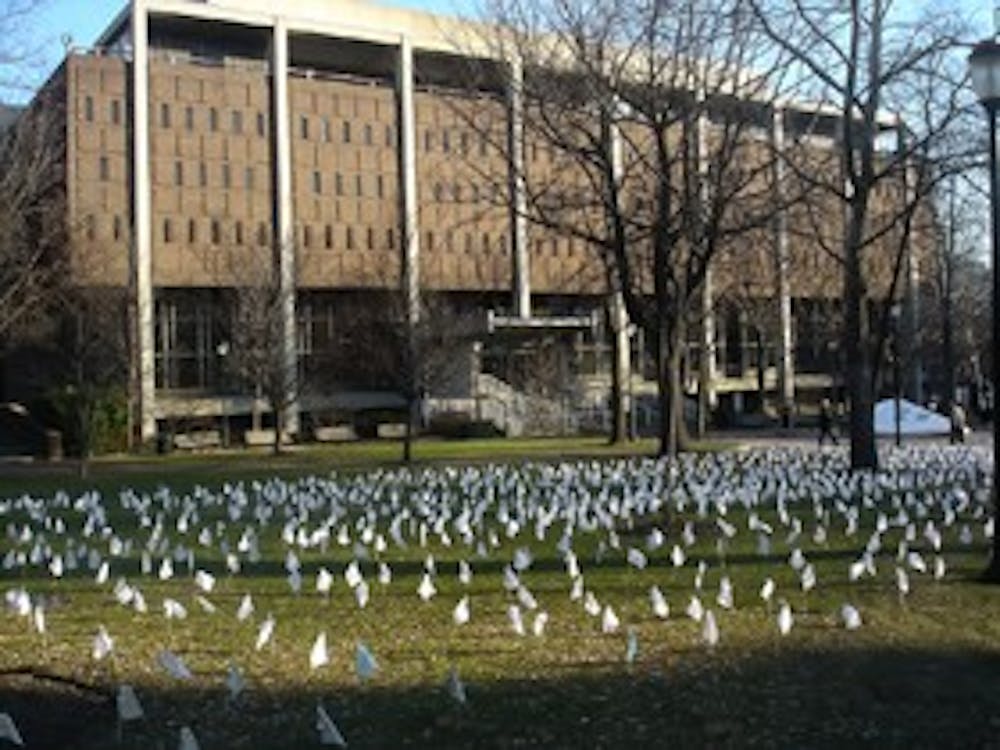On Thursday, Penn for Palestine held a memorial for the lives lost in the conflict with Israel in Gaza last winter. Reactions to the memorial were mixed, with many responding positively to the memorial and its purpose and others taking issue with the political statement they considered implicit in the event’s message.
According to Dara Elass, Engineering junior and president of Penn for Palestine, the group’s aim was both to remember the loss of life and to raise awareness of what they call the “Gaza Massacre.”
One-thousand-four-hundred white flags and thirteen blue flags were placed on College Green, representing Palestinian and Israeli lives lost, respectively. The numbers came from Amnesty International, Elass explained.
In addition to the flags, posters were hung around the memorial itself and on Locust Walk.
One poster read, “After 18 months of blockade, Gazans were massacred.” Another referred to Israel’s use of white phosphorus in military operations as illegal.
Penn Israel Coalition co-President and Wharton junior Seth Bluestein took issue with these posters. He said the slogans were either factually incorrect or taken out of context.
For example, he said the use of white phosphorus powder as a screening device is not illegal.
Regardless, College sophomore and Hillel’s Israel Sector Chairwoman Rachel Baker said the incendiary nature of these posters was what elicited a response from PIC.
PIC created and hung up fliers of its own. Baker said some of these fliers were torn down by Penn for Palestine members.
Elass made it clear that her group has a policy against ripping down posters, but admitted that on this occasion one group member did take down a number of PIC fliers.
According to this member, the only fliers taken down were taped directly onto Penn for Palestine’s posters, while the posters taped to poles throughout campus were left alone.
According to Baker, however, many of those posters were torn down by unknown individuals. She said she regretted what she felt was a limitation of free speech and discourse.
One of PIC’s two fliers cited the 4,000 rockets fired into Israel from Gaza and asked the rhetorical question, “What would you do?”
This prompted Lee Veeraraghavan, a first-year Ph.D. student studying ethnomusicology, to write her own personal note and hang it up along with the other posters.
She said she felt the question implied that Israel’s response and the resulting loss of life was justified, an idea that outraged her.
The note was later ripped down by an unknown individual.
Veeraraghavan said in such political arguments, it is “easy to forget we’re talking about people.”
Reflecting on the day as a whole, she considered the event a success. She said in spite of some “knee-jerk reactions,” the event sparked what she thought was a much-needed conversation.



